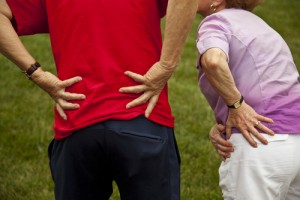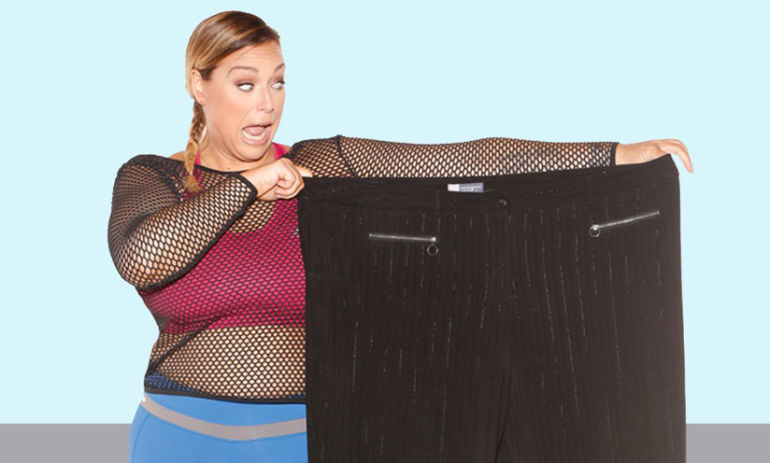Am I Overweight For My Age - Height?
When one is considered overweight?
There are some indicators which tell you that you are overweight. Most commonly used indicator is BMI - Body mass index.
What is BMI?
BMI (Body Mass Index) is a statistical measure aimed to find the "fitness" of a person according to that person's weight and height.
Body Mass Index (BMI) is calculated by dividing your weight in kilograms by your height in meters squared. A Body Mass Index between 18.5 and 25 is ideal.
People with a BMI between 25 and 29.9 are overweight and a BMI greater than 30 indicates obesity.
For continued better health & fitness, you need to achieve BMI between 18.5 & 25.
Another measure which is popular is the measure of circumference around your waist at your belly button level. For men it is expected to be 90 cms / 35.50 inches for healthy and trouble free life & for women it is 80 cms / 31.50 inches.
Proper weight control is important. Obesity is a serious health hazard as the extra fat puts a strain on the heart, kidney and liver. It also puts extra weight on large weight bearing joints such as hips, knees and ankles.
Overweight people may be more susceptible to variety of disease such as diabetes, blood pressure, arthritis, gouts, liver disorders etc.
Fatness is caused when you consume more food than is required by the body for its activities. There are other factors also which influences weight gain or loss e.g. genetics, emotional make up, diseases etc.
Fat parents typically have fat children. Happy cheerful people also tend to be fat. Glandular disturbances also can make you fat e.g. any disturbance with pituitary or thyroid gland can make you fat because of lowering of basic metabolic rate.
Most people can adjust their weight by paying attention to their food.
It is advisable to lose 4.4 to 6.6 pounds or 2 to 3 kgs per month rather than losing weight drastically. This means you will have to cut about 500 kcalories per day from your food intake which can be easily done.
Some of the actions you can take are:
1. You can cut down on calorie-rich food such as sugar & fats.
2. Keep protein level high by using non-fatty foods like fish, chicken & skimmed milk
3. Use vegetables freely as they provide satisfaction and bulk without injecting too many calories. They also supply vitamins and minerals. Do not eat fried vegetables. Either bake them or boil them.
4. Green leafy vegetables are also useful in getting many micro nutrients without adding calories to your diet.
5. Avoid salt if you are suffering from high blood pressure.
Specific foods which may be avoided drastically are:
1) Butter
2) Cheese
3) Chocolate
4) Ice-cream
5) Fried foods
6) High carbohydrate foods like : bread, cookies, candy etc
7) Honey, sugar
8) Alcoholic drinks
Exercise is one area which you can consider to reduce your weight and acquire fitness. Walking is one of the best exercises one can begin at any time without any strains.
A walk for one hour requires the energy given by one banana. It may be easier to avoid one banana if you want to reduce weight.
Certain yogic asanas also are helpful. They not only break-up fatty deposits or re-distribute them but also strengthen flabby areas. These asana include Bhujangasana, Chakrasana, vajrasana & yogamudra.
When one starts dieting, often the tissues which are used up are filled with water and fluids and so initially you may not see a weight decrease. Persist and you will win.
By: Pradeep Mahajan
-
The Carbs Go In The Cravings Come Out Thats What Weight Gain Is All About
It can happen with one bite. The moment those refined carbohydrates en
-
A Review Of The Most Popular Diet Methods
Summertime is approaching and, for those who have to lose weight an
-
Lose Weight Sushi Is Your Friend
If youre not making sushi at home youre missing out on a delicious and
-
Chinese Herbs for Weight Loss
Some Potent Chinese Herbs for Weight Los
-
Why The Raw Food Diet
Because cooking takes so many vitamins and nutrients OUT of food, y
-
Giving Nature A Helping Hand In Fat Burning
When your GP advises you to lose weight are you the type of patient wh
- DON'T MISS
- Make Getting In Shape Easier Utilizing This Type Of Advice
- Why’s HCG diet more advanced than several other weight loss diets?
- Good vs. Bad: Low Fat Diets
- How to Walk Off Extra Weight
- Breaking the Eating Problem that Has You Stuck
- Exercising Your Stomach With Yoga
- Lose 10 Pounds In 7 Days - Safe With Two Dynamite All Natural Weight Loss Tips
- Weight Loss Psychology: Are Your Thoughts Making You Fat?
- Want to Lose Weight? Let Go of FEAR
- Weighting It Out Your Guide To Using Weight Lifting To Lose Weight




